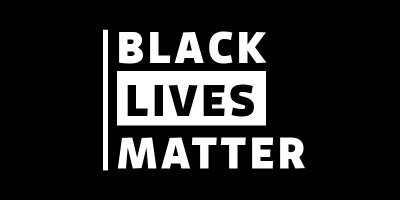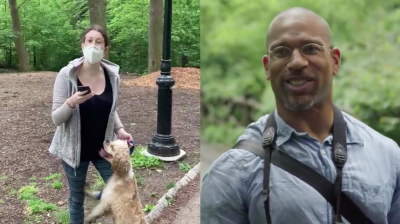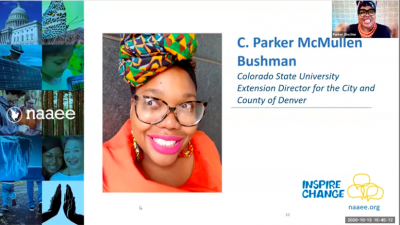
We stand in solidarity with our Black and Brown participants, volunteers, faculty and staff here at the UConn Natural Resources Conservation Academy (NRCA). Enough is enough when it comes to racial inequality, violence and other injustices that have plagued all aspects of our society and communities for far too long. We will not be silent. We are committed to addressing racial inequities, particularly within our fields of focus: the environment, natural resources & conservation sciences, and community education. We regret not doing enough before now to address these injustices within our line of work and promise to integrate racial equity and inclusion efforts into all that we do going forward.
We at the NRCA stand with Black and Brown communities and all disenfranchised and oppressed groups that continue to face adversity that affects their everyday lives. Throughout this statement our emphasis is on Black people due to the gravity of the racism they face, but we recognize and acknowledge that these racist issues transcend marginalized groups (Black, Indigenous and People of Color [BIPOC]).
Like the larger University, the NRCA abhors discrimination, bigotry, prejudice and acts of racialized violence and does not condone or tolerate acts that desecrate and disrespect any segment of our community. As we long for peace, justice and healing, we mourn for Breonna Taylor, George Floyd, Eric Garner, Armadou Diallo, Ahmaud Arbery, Michael Brown, Tamir Rice, Atatiana Jefferson, Trayvon Martin, Stephon Clark, Alton Sterling, Philandro Castile, Sandra Bland, Jacob Blake and many others.

Racial inequities and injustices have seeped into so many spaces of our everyday lives, even in areas that may otherwise be deemed as “safe.” Those of us who represent the dominant culture in environmental fields have a long history of assuming that the outdoors, greenspaces, or other natural areas are an open safe haven for all. However, as Christian Cooper’s Central Park birding experience in March 2020 has demonstrated, outdoor/greenspaces are not always a “safe haven” for many people of color because they potentially face racial biases, threats and/or violence in these places. We also recognize the role that America’s history of race has had in shaping cultural differences in how we think and feel about our relationship with nature and the environment.

Unfortunately, as with so many college campuses, racial issues are present and visible here at UConn. Institutes of higher education must work harder to proactively prevent and address insensitivities, biases, and blatant racial injustices.We at the NRCA are committed to continuing the fight for inclusion, antiracism, and racial equity on our campus, in our greater UConn community, and through our extension work and other opportunities. Below we outline the specific actions we are taking to address racial inequity and inclusion in outdoor/greenspaces as an organization and within the broader environmental field.

First, we commit ourselves to ongoing self-reflection and acknowledgement to understand our biases and how our actions enable our current racist culture to persist. We understand the immediacy of these issues, and also acknowledge that the battle against systemic racism is a marathon, not a sprint. We commit to the long process of unlearning racist behaviors, thoughts, and actions, and to actively work to be anti-racist in every way. To do this, the NRCA team is participating in equity trainings offered by various groups and taking an active role on Equity and Inclusion committees at the department and college levels and in external environmental organizations.
 Second, we commit to listening to, and amplifying, the voices of BIPOC members of the communities we serve and beyond. Specifically, we are exploring new ways of celebrating the voices, community efforts and accomplishments of our BIPOC participants by showcasing their work through our social media, facilitating local press that highlights their efforts, and recognizing their efforts through well-deserved awards. We are also working to counter stereotypes of who belongs in science and environmental fields by highlighting BIPOC scientists and leaders through our online platforms. Our team is undergoing training to develop conservation projects with the community, rather than for the community. One of our primary goals is to work alongside BIPOC communities and learn how we can collaborate to expand our capacity to address local environmental issues that have real relevance to the community.
Second, we commit to listening to, and amplifying, the voices of BIPOC members of the communities we serve and beyond. Specifically, we are exploring new ways of celebrating the voices, community efforts and accomplishments of our BIPOC participants by showcasing their work through our social media, facilitating local press that highlights their efforts, and recognizing their efforts through well-deserved awards. We are also working to counter stereotypes of who belongs in science and environmental fields by highlighting BIPOC scientists and leaders through our online platforms. Our team is undergoing training to develop conservation projects with the community, rather than for the community. One of our primary goals is to work alongside BIPOC communities and learn how we can collaborate to expand our capacity to address local environmental issues that have real relevance to the community.
 Third, we commit to developing culturally-sensitive and responsive environmental action programs. Our initial efforts to accomplish this have included:
Third, we commit to developing culturally-sensitive and responsive environmental action programs. Our initial efforts to accomplish this have included:
- Adding program activities that discuss inclusion and equity in outdoor spaces and environmental justice
- issues with our students;
- Encouraging and supporting learners to explore conservation projects that integrate their diverse interests to demonstrate that environmental participation requires unique and diverse skill sets that everyone can contribute to;
- Carefully revising our program messaging to be as inclusive as possible to the participants and communities we serve.
We also are actively pursuing funding sources to provide paid-opportunities for BIPOC undergraduate students to take on program leadership roles to bring innovative programmatic ideas and serve as near-peer role models to NRCA teen participants.
 Fourth, we commit ourselves to being a voice for and with others – not remaining silent. Not only must we hold ourselves accountable, but we must hold the university accountable in creating a more inclusive environment that it promotes and strives to uphold.
Fourth, we commit ourselves to being a voice for and with others – not remaining silent. Not only must we hold ourselves accountable, but we must hold the university accountable in creating a more inclusive environment that it promotes and strives to uphold.
As an organization with goals to promote environmental conservation and community well-being, we at UConn NRCA must acknowledge that racism is everywhere, and that it includes the world of conservationists and environmentalists. Our team is committed to continually seeking knowledge, growing, listening, learning, and tackling systemic racism so that outdoor spaces and environmental participation are inclusive of all people, in particular Black and Brown people of all backgrounds.
The ideas expressed here are those of the UConn NRCA faculty and student team. We welcome suggestions and feedback on our evolving views and initiatives to continue to understand how to best address these critical issues in our communities, and to work to ensure that our efforts are anti-racist. Contact nrca@uconn.edu to reach our faculty and student team.